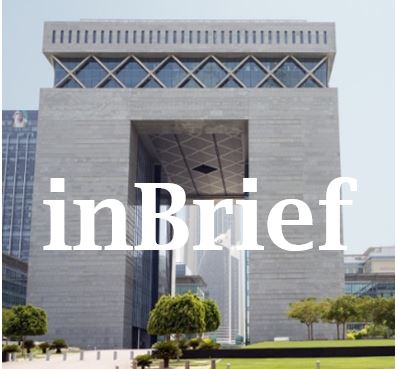DFSA imposes record fine on Deutsche Bank
Afridi & Angell inBrief
April 2015
At the end of March 2015 the Dubai Financial Services Authority (the “DFSA”) imposed its largest fine to date on Deutsche Bank AG Dubai (DIFC Branch) (“Deutsche Bank”). The size of the fine, US$10.5 million, is perhaps modest when compared to the recent GBP 126 million (US$189 million) fine handed to Bank of New York Mellon by the UK regulator, but it is significant in the context of the DIFC, particularly when you appreciate that Deutsche Bank is one of the larger and more important financial institutions in the Centre. The fine sends a clear signal that the DFSA is both independent, and unafraid of taking on sophisticated and well-resourced opponents.
The fine is also a reminder that a cover up can often be worse than the initial crime. Sources close to the DFSA have confirmed that the regulator is unlikely to have taken any formal action against Deutsche Bank if the bank had disclosed its initial breach in a timely manner. As is made very clear in the Decision Notice published on the DFSA website, the bulk of the fine is based upon the fact that Deutsche Bank not only failed to cooperate with the DFSA investigation, but also actively mislead the DFSA and provided false information to the regulator.
During a three-year period beginning in January 2011, Deutsche Bank operated in a manner that was contrary to certain provisions of the DFSA Rulebook. The bank’s private wealth management team in the DIFC was providing some advisory services to high-net-worth individuals without documenting these individuals as clients of the DIFC branch. In summary, Deutsche Bank is authorized by the DFSA to provide the financial services of, amongst others, arranging and advising. This was the case during the relevant period, and continues to date. Also, there is no suggestion that the advisory services provided were anything other than competent and professional. The investigation found that there was no evidence of financial detriment to the bank’s clients. Furthermore, this does not seem to be a case of rogue individuals inside the bank improperly chasing bonuses or commissions.
The only thing Deutsche Bank did wrong (at least initially) was to fail to document high-net-worth individuals as clients of the DIFC branch. The business model that the bank was meant to be following was for the individuals to be referred by the DIFC branch to other parts of the Deutsche Bank group (including but not limited to branches in Geneva and Luxembourg). This was being done (and the clients properly documented in those booking centres) but the DIFC private wealth management team continued to be in touch with the clients, and therefore provided the previously mentioned advisory services. If they had simply issued a DIFC client agreement, and complied with the standard DIFC KYC and AML procedures, all would have been well. Unfortunately, this did not happen, and the DFSA became aware that Deutsche Bank might have been uncompliant in these areas.
It was at this point that the senior management within Deutsche Bank made some startling errors of judgment. Amongst other things, false and misleading emails and letters were sent to the DFSA by the bank’s compliance team. Internal reports about possible breaches of the DFSA Rulebook were suppressed. Bank employees were encouraged to amend internal reports to remove references to regulatory breaches. The bank then refused to comply with a DFSA notice requiring the production of various documents. This then compelled the DFSA to seek a DIFC court order to enforce the notice.
The DFSA’s investigation into the breaches at Deutsche Bank took two-and-a-half years to resolve. The final six months were apparently spent negotiating the wording of the published Decision Notice. The bank obtained a 20 percent discount on the total amount of the fine by agreeing not to appeal or otherwise contest the fine. Unlike many of the other notices or undertakings published by the regulator in other matters, no specific names are mentioned in the Deutsche Bank notice. The blushes of the relevant people at Deutsche Bank have therefore been spared. Nonetheless, this must have been an embarrassing episode for the bank, and something of a success for the DFSA. ■
Download inBrief as PDF


